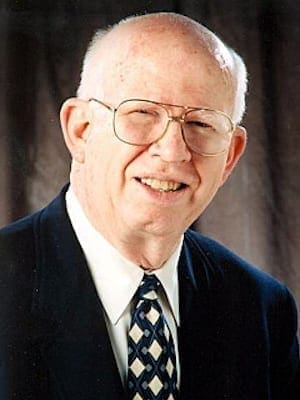When Pope Francis kissed Dominic Gondreau, a boy with cerebral palsy, on Easter Sunday, he sent a powerful message that needs to be amplified over and over again.
God loves all children – those who are well and those who have some challenging condition. Pope Francis compounded his busy Easter duties to demonstrate God’s amazing love.
Throughout my professional career as a clinician and as an administrator providing services for those with disabilities, I was met constantly with expressions such as, “If God had not wanted him this way, he would not have been born this way. It is a sin to interfere with God’s plan.”
I met these opinions often from members of every economic, racial and religious distinction. A few examples:
â— While talking with the very affluent parents of a child with a stuttering disorder, the father attributed his daughter’s problem to punishment for his and the mother’s failure to attend church regularly and to tithe their income.
â— I confronted a professional colleague who held an advanced degree from a prestigious university about her statement that the person’s hearing impairment was due to his lack of finding true faith in Jesus.
â— Parents of children with cerebral palsy subjected their children to traveling faith healers and were devastated when nothing changed.
These were difficult situations for me. I did not approach them lightly.
I never knowingly want to dishonor another person’s faith or interfere with his or her beliefs in God. My usual approach was to gently refer people back to their clergy person or an appropriate counselor.
On those occasions when I did feel it appropriate to respond, I said, “I can only tell you what I know to be true. God loves you and your loved one (son, daughter, parent). God wants the best life for your child that it is possible for her or him to have. God has empowered scientists, researchers, doctors and therapists with the abilities to search for and deliver the best care possible.”
Of course, some disabilities are the tragic, natural consequences of behaviors by the person herself, himself or the parent, but these are not judgments from God. These are predictable outcomes.
The question I never tried to answer for anyone is, “Why does God answer some prayers and not answer others?”
The best I could do was to assure them that God knows far more about the situation than any of us. This is where trust and faith come in.
Sometimes I had the presence of mind and heart to say nothing at all. I had rather err on the side of silence than to speak and do harm. I prayed for God’s guidance on when to speak and when to remain silent.
When my wife was in intensive care, prayers went up for her around the globe.
She grew up in the Philippines, the daughter of missionaries. Each time I was permitted in to see her, I told her about all of the people and groups praying for her.
I do not know whether she heard me or not, but I do know that just telling her about them strengthened me.
Prayers are answered in many ways and not always in the manner of our petition. Jesus gave us the perfect example of that when he prayed, “But not my will, but thine be done.”
In an article in Parade magazine, Robin Roberts, the ABC anchor, said that before her bone marrow transplant, her doctor prayed and that gave her added strength.
As I have struggled with these issues, both personally and with those I have tried to help, I have landed securely on the spot where I started as a child.
God is love, and that love encompasses me and everyone else. There is no one outside the love of God.
I pray that those with disabilities and their loved ones take peace and comfort from that assurance.
I am grateful to Pope Francis for his magnificent gesture, which symbolizes God’s abundant love.
Mitch Carnell is the author of “Random Acts of Kindness.” He and his wife, Carol, are members of the First Baptist Church of Charleston, S.C. He blogs at MitchCarnell.com.
A member of First Baptist Church of Charleston, South Carolina, he was the author of “Our Father: Discovering Family.” Mitch’s writings can be found at MitchCarnell.com.

